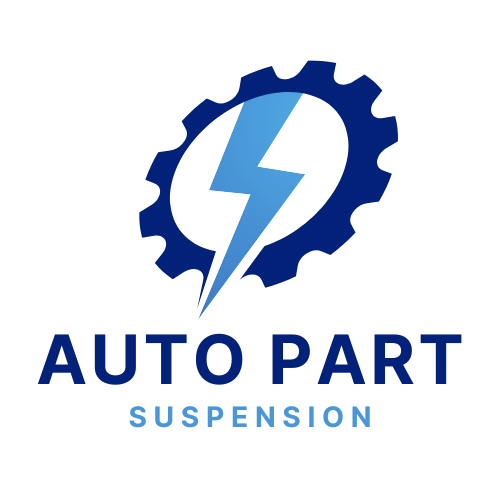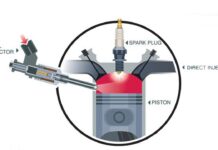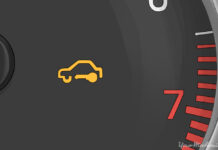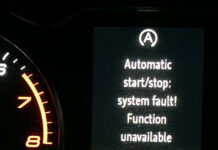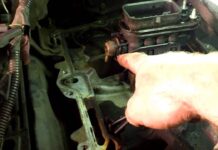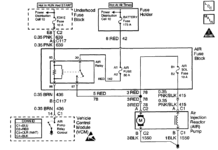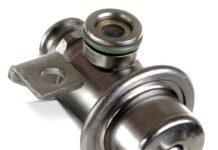What causes the car losing traction? Is the engine losing power? There are signs of an engine failure and steps to take.
Your car may be losing power. Do you feel like your 110-hp engine is running like a junk vehicle? You may have a serious engine problem!
It is difficult to determine why your vehicle has lost power. You could lose a lot of money if the problem is not diagnosed. You can have a small problem that is easily fixed or a major problem that causes you to lose power. I hope this article helps you to solve your problem.
1- Fuel Filter Clogging
If your vehicle does not run as well as it used to when you pressed the accelerator pedal, check the fuel filter, fuel pipe and injectors. The fuel filter filters out dirt and impurities from the fuel before it is sent to the injectors. The ECU controls the injection of the fuel. The combustion of the engine’s fuel/air mixture occurs in the cylinders. The filter can become clogged from dirt, dust, and rust deposits that build up over time in the tank. The filter can block sensitive parts, which can lead to serious damage and costly repairs. When injectors stop working, they can’t inject the fuel required into the cylinders. The vehicle will lose traction if the filter becomes clogged. The engine will run harder, the idle will fluctuate and the vehicle may stall. Depending on the vehicle’s model, fuel filters should be replaced at intervals.
2-Black Smoke from Exhaust
The exhaust smoke is usually black and indicates an ignition problem or excess fuel. Both can cause power loss. Kickback is caused by fuel/air mixture not being fully ignited. Explosions can result from ignition and fuel ratio issues.
An essential component of engine diagnostics is the evaluation of spark plug surfaces. It is a sign that the engine is in good health if it is gray-white or gray-yellow or gray-brown. If the insulator tips, electrodes, and spark plug body are covered in velvety-black soot it means that the vehicle is in a dense mixture. This means that the fuel entering the combustion chamber has more fuel and the air has less. It is important to check if the air filter has become blocked.
If engine oil is accumulated on the spark plug body, electrodes and insulator tip of the spark plug, this indicates that there are problems with the cylinder, piston rings, or valves.
Excessive ash around the middle electrode indicates that additives in oil or fuel are causing engine damage.
The engine may be overheating because of untimely ignition if the middle electrodes have melted and the tip of the insulator has softened. It is important to check advance setting and the fuel/air mix.
3- Vehicle Vibration at Idle Excessive
Do you feel your vehicle vibrate when it is stopped at the lights? Do you feel the vibration from head to feet or through your steering wheel? It could be a sign that the vehicle is losing power. It indicates that the ignition is not working properly. You will notice other signs of a misfire if it is not fixed quickly. These can include difficulties starting the vehicle, stopping when it is idle, or problems with the air conditioning, headlights and defroster. equipment is on) and driving less mileage with the same amount fuel. It can also cause damage to your exhaust system.
There are three main reasons engines can misfire. Three reasons for engine misfires are spark plug loss, compression loss (compressor leaking), and leaks in the fuel/air system. Bad spark plugs can cause problems with ignition. Compressor leakage may be caused by valve deformation. All of this can cause the vehicle to vibrate, causing it to lose power.
This could be due to poor fuel quality, advance adjustment defects, malfunctioning ignition system (coil or spark plug), fuel pump and injectors, sensors etc. It can also be caused by poor quality fuel.
4- Falling from Traction On Slopes
All is well on the straight road. But what if your car is having problems on the ramps and turns? This is usually a sign of clogged fuel filters. Over time, the filter that cleans fuel gets more dirty. The fuel pump will have to work harder in order to provide the vehicle with the fuel it needs. The vehicle might not be able provide enough fuel in high demand situations (climbing ramps or sudden acceleration). You can get your vehicle’s fuel pressure checked to understand why. You may have rust or contamination in your tank if the problem persists after you change the filter.
5-Engine Malfunction Lamp
These problems, along with power loss, will cause your malfunction warning lamp (or check engine light), to turn on. Most of these problems are caused by power loss in the spark plugs, air mass flow sensor, oxygen sensor and catalytic converter.
If none of the above signs resolve your problem, and your vehicle is still losing power, you should have your catalytic converter checked. Its job is to extend the vehicle’s life, but it can also fail or become blocked. It can block the engine and prevent the exhaust from releasing the polluting gas.
Remember! Remember that small problems can be indicators of larger problems.
